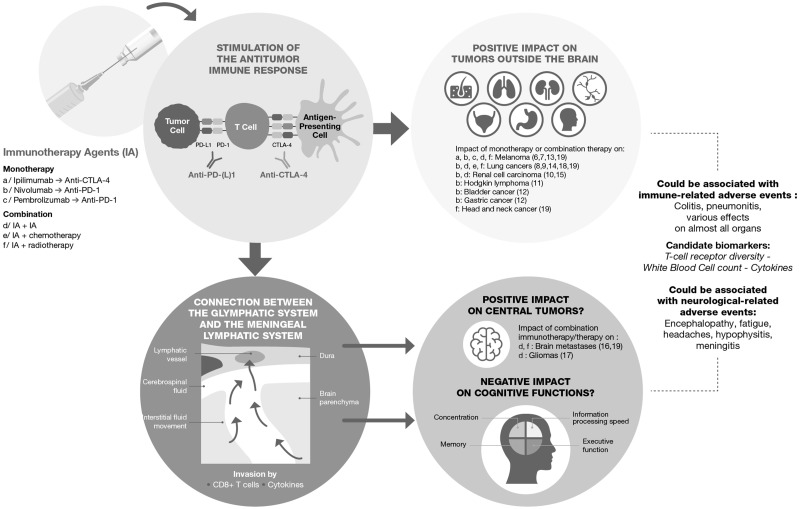Figure 1.
The potential effect of immunotherapy agents on cognitive functions. Immunotherapy agents, anti-CTLA-4 and anti-PD-(L)1 antibodies, are used in monotherapy or in combined therapy, and they have shown efficacy in numerous tumors outside the brain. The connection between the glymphatic system and the meningeal lymphatic system allows the crossing of T-cells and cytokines and could explain the effect of immunotherapy on central tumors. Louveau and colleagues (38) have put forth a model in which the glymphatic system drains to the meningeal lymphatic vessels via the cerebrospinal fluid. This model in which T-cells may play a role in the central nervous system, could explain the effect of immunotherapy on brain metastases and gliomas. Immunotherapy could be associated with immune-related adverse events likely to affect almost all organs. Candidate biomarkers have been preliminary studied to predict which patients will experience the most clinically significant immune-related adverse events. Neurological-related adverse events are also described, and cognitive difficulties could be one of them.

